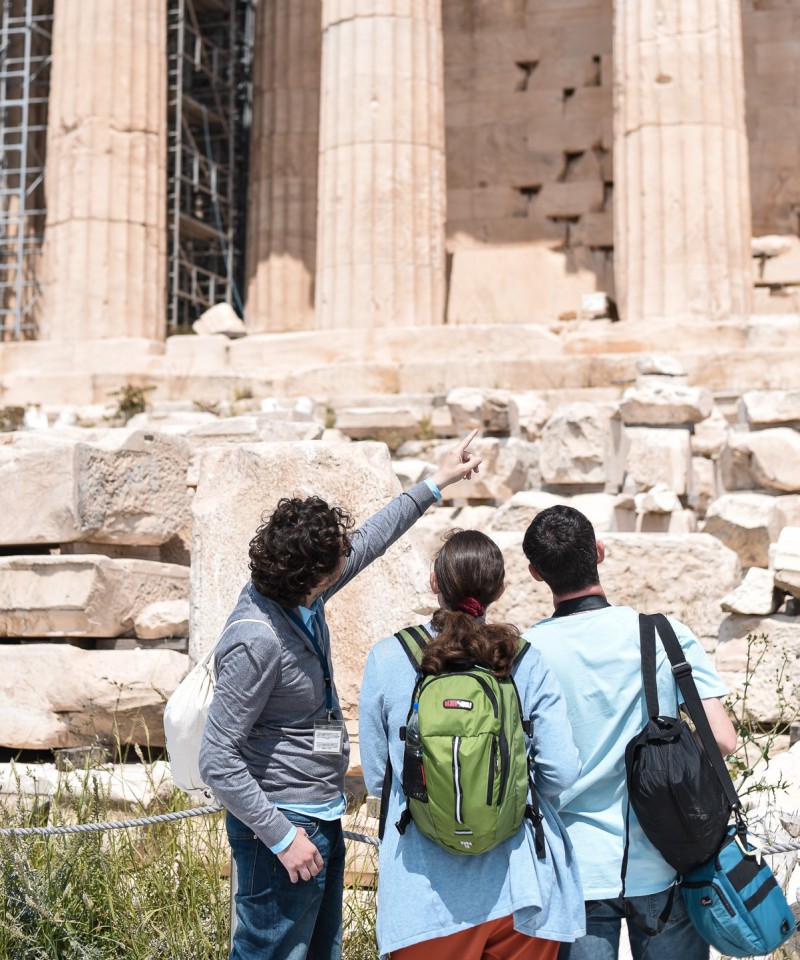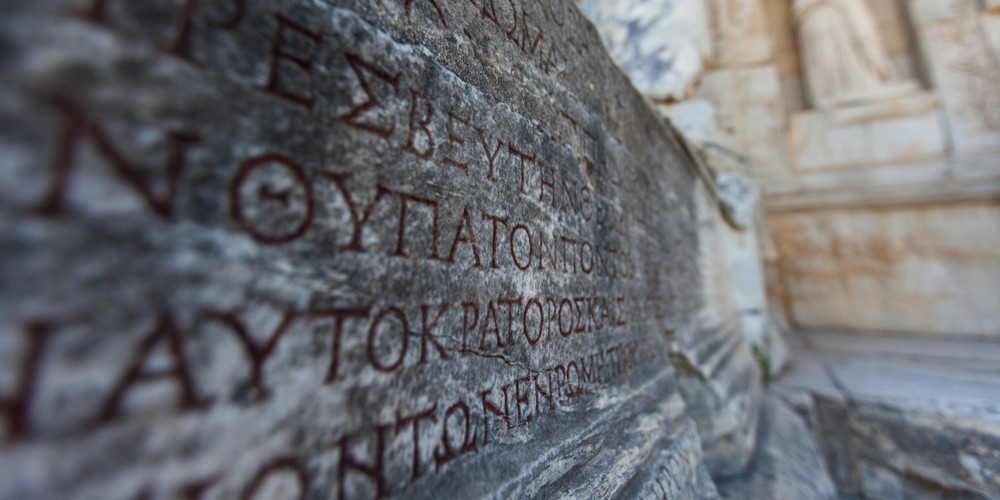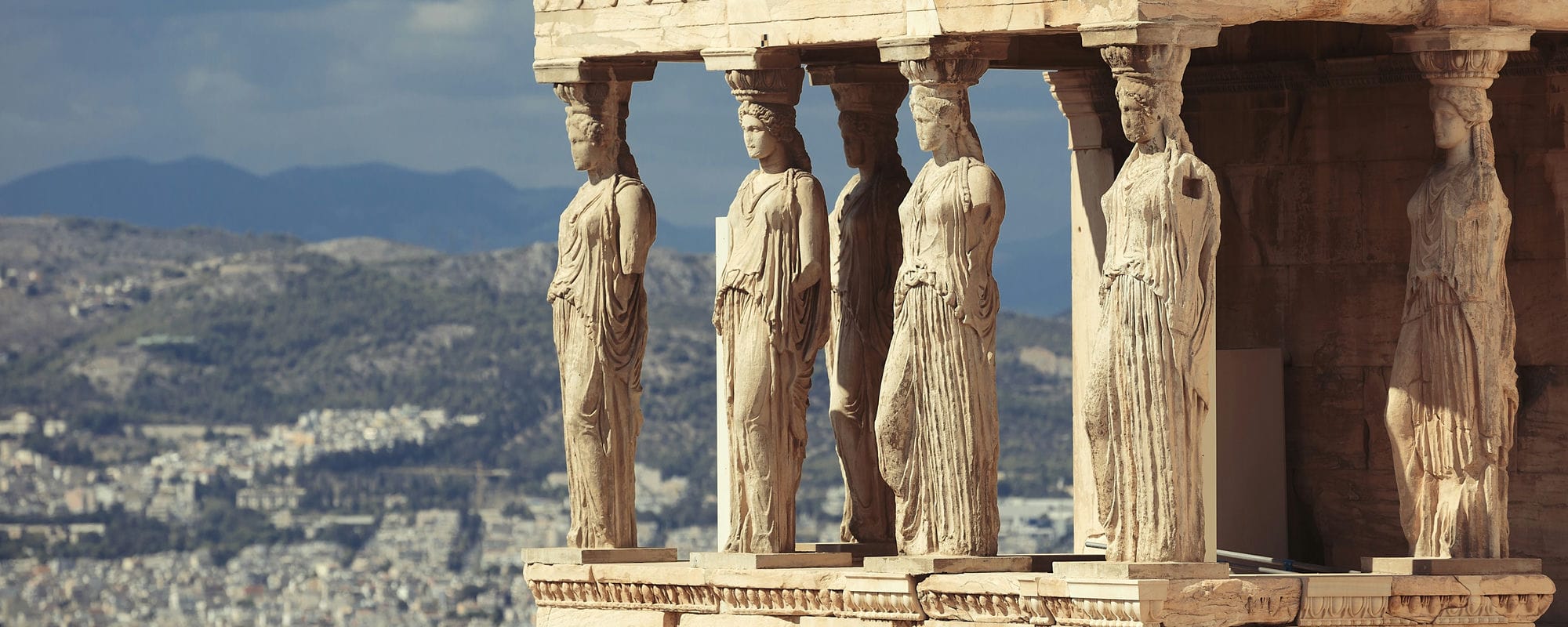
When was Greece Founded: Tracing the Origins of a Historic Nation
Key Takeaways
- Unfortunately, there is no definite answer to the question 'when was Greece founded?'
- Greece's "founding" is an ongoing process beginning with early settlements around 8500-9000 BP.
- Greek identity and language emerged in the early Bronze Age, continuing through various historical periods.
- The Classical Period represents the peak of ancient Greek civilization’s influence on the West.
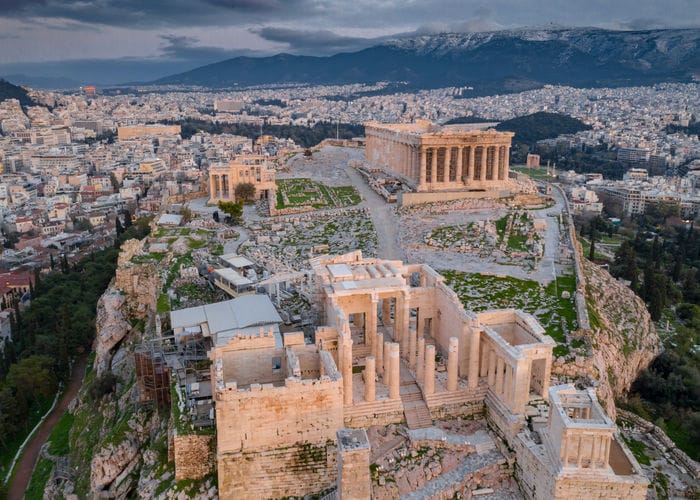
Greece, with its rich history spanning thousands of years, doesn't have a definitive "founding" date in the way modern nation-states do.
Archaeological evidence points to the region being inhabited as far back as the Neolithic age, with agriculture forming the basis of early settlement around 8500-9000 BP.
The Greek language and the cultural identity associated with ancient Greece began to take shape during the early Bronze Age, around 3200 BC, with the arrival of Greek-speaking tribes.
The concept of a singular founding moment becomes even more abstract when considering the historical trajectory of the region.
Following the Mycenaean civilization, Greece entered a period known as the Greek Dark Ages before re-emergence in the Archaic Period, laying the foundations for classical Greek society.
This was the era of the polis, the establishment of democracy in Athens, and the flourishing of arts and philosophy.
It was capped by the Classical Period, the zenith of Greek influence punctuated by the leadership of figures like Pericles and the conquests of Alexander the Great, which marked the start of the Hellenistic Period and the spread of Greek culture throughout the Mediterranean and beyond.
The Concept of Founding a Civilization

In the context of world history, the founding of a civilization is a complex process.
It cannot be pinpointed to a specific date or event but is characterized by the gradual development of societal structures and cultural practices.
There are certain criteria, however, that scholars use to define the emergence of a civilization.
Criteria for Civilization:
- Development of settlements: These are hubs of human activity, where trade, governance, and community life take place. The shift from nomadic lifestyles to permanent settlements is a key indicator of civilization.
- Complex societal structures: This includes a hierarchy or class system that reflects roles, responsibilities, and governance.
- Innovations: Technological and artistic advancements play a role in the sophistication and uniqueness of a civilization.
The term 'civilization' itself suggests an organized society with developed knowledge of farming, trade, government, art, and science.
When assessing ancient Greece, it constructs a narrative that traces Greek civilization from the Neolithic Age, where the first permanent settlements began, leading up to the Hellenistic period marked by the end of Alexander the Great’s reign.
Greek Civilization Timeline Highlights:
- Neolithic Age: Characterized by permanent settlements (circa 6000 - 2900 BCE).
- Greek Dark Ages: Followed the Mycenaean civilization (circa 1100 - 800 BCE).
- Archaic Period: Formation of city-states (circa 800 - 480 BCE).
The establishment of a civilization is the result of evolutionary processes, which reflect human ingenuity in adapting to and shaping their environment for communal advancement.
It encompasses a wide array of cultural and technological achievements that become the legacy of later societies.
Prehistoric Greece and the Earliest Settlements

The foundation of Greece stretches back to prehistoric times when early human societies first settled in the region.
Evidence suggests that during the Neolithic period, which spanned roughly from 7000 to 3000 BCE, Greece was already home to substantial agricultural communities, thus marking the beginning of settled life in the area.
One significant archaeological site, the Franchthi Cave in the Peloponnese, provides valuable insights into human activity dating back to the Stone Age.
The cave's usage spans a vast timeline, from as early as 40,000 BCE to the final abandonment of the site in the Neolithic period, providing an important chronicle of human development in prehistoric Greece.
With the advent of the Bronze Age around 3200 BCE, two noteworthy civilizations emerged: the Minoans and the Mycenaeans.
The Minoan civilization, considered Europe's first major advanced society, thrived on the island of Crete.
Famous for their elaborate and sophisticated Minoan palaces, such as the renowned site at Knossos, they had a far-reaching influence on the Aegean.
The Mycenaean civilization emerged around 1600 BCE and further developed the region.
Their language was an early form of Greek, marking the entrance of the Greek-speaking populace into history.
The Mycenaeans are known for their fortified palaces and sophisticated bureaucratic system, which underscored their importance to the later development of classical Greek culture.
Both civilizations made substantial contributions to the fabric of the early history of Greece, setting the stage for the remarkable developments in art, politics, and philosophy that would eventually define classical Greece.
The Greek Dark Ages and the Rise of the Polis
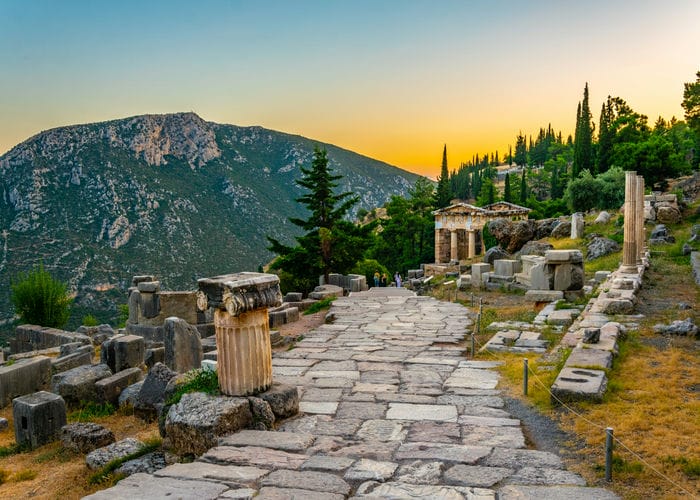
During the period known as the Greek Dark Ages, from approximately 1200 to 800 BCE, the once flourishing palace-centric Mycenaean civilization witnessed a significant decline.
This era, marked by a palpable absence of written records, succeeded the catastrophic Bronze Age Collapse. Numerous city-states, or polis, later emerged from the ashes of this obscured epoch.
The Characteristics of the Greek Dark Ages:
- The period saw the disuse of the Linear B script.
- Dark Age is a term that reflects the scant historical records and the halt in economic, artistic, and architectural development relative to previous eras.
- A notable reduction in population and material culture.
The latter part of the Dark Ages set the stage for transformation. Around the 8th century BCE, Greece began to stabilize.
Populations increased, and a new social structure gradually came into play with the polis becoming the dominant feature of Greek political life.
Each polis was a city-state that included a city and its surrounding countryside.
Key Aspects of the Rise of the Polis:
- The political landscape of Greece fragmented into small, self-governing units.
- A shift from palatial to communal governance.
- The dawn of classical Greece can be traced back to these singular, sovereign city-states.
Prominent Examples of City-states:
- Athens: Known for leadership under Pericles, promoting culture and democracy.
- Sparta: Recognized for its military discipline and unique social system.
- Corinth and Thebes: Other significant poleis with political and military influence.
In essence, the Dark Ages provided a formative period of restructuring which ultimately led to the development of the city-states and the rich cultural tapestry of classical Greek civilization.
It was within this geopolitical framework of the polis that Greece laid the groundwork for Western democracy, philosophy, and the arts.
The First Recorded Date in Greek History: The Olympic Games
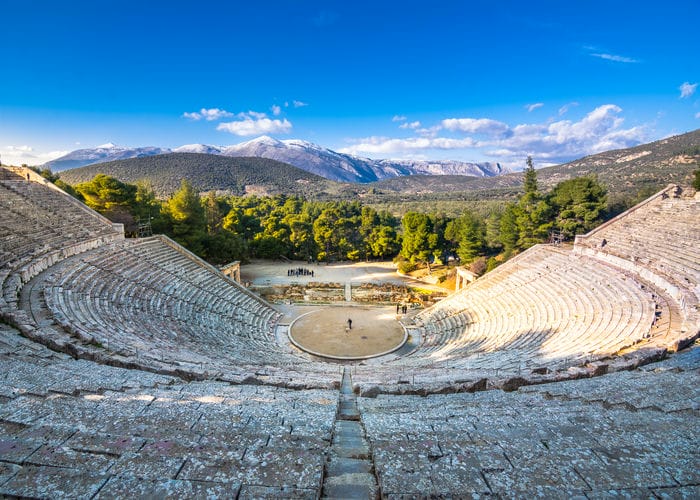
The foundation of historical dating in Greece can be traced back to the inception of the Olympic Games, which holds the distinction of being one of the earliest documented events in Greek history.
Records show that the first Olympic Games took place in 776 BCE. This quadrennial athletic festival was more than a series of competitions; it was a homage to Zeus, the chief deity in the Greek pantheon.
The games were held at Olympia and were a pivotal aspect of Greek culture—so much so that even wars were paused to respect the tradition. This period of peace was known as the 'Olympic truce.'
Key Points of the Ancient Olympic Games:
- Periodicity: Held every four years (Quadrennial)
- Starting Point: Documented to have started in 776 BCE
- Location: Olympia, Greece
- Significance: Part religious festival honoring Zeus, part athletic competition
Athletes from various city-states and kingdoms gathered to compete, signifying the event's importance in fostering a pan-Hellenic identity.
The unity and reverence for the games were such that they marked time in Olympiads, a term describing the four-year period between the games.
The events at the games encompassed more than just feats of strength and speed; they were a reflection of the values and philosophies that permeated Greek life.
The original Olympic Games featured a diverse set of athletic challenges, from footraces to combat sports, but started with a singular event: a 192-meter footrace known as the 'stade,' from which we derive the word 'stadium.'
The Archaic Period: Laying the Foundations of Classical Greece
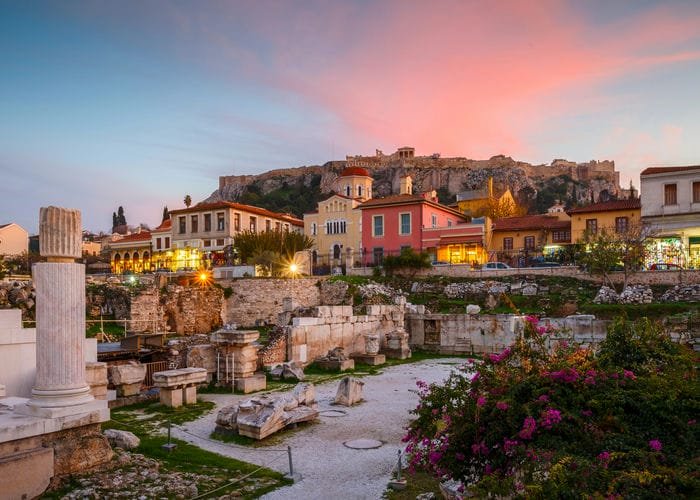
During the Archaic Period, ancient Greece transitioned from the obscurity of the Dark Ages into a flourishing civilization.
This era witnessed the crystallization of Greek identity and the genesis of institutions that would underpin Western culture.
Transition from the Dark Ages to the Archaic Period
The end of the Greek Dark Ages around 800 BCE heralded the advent of the Archaic Period.
Homer, one of the earliest and most significant Greek poets, emerged during this time, authoring epic poems like The Iliad and The Odyssey.
These works not only cultivated the Greek language but also embedded shared myths that contributed to a cohesive Greek identity.
Art and architecture experienced a renaissance, shifting from geometric designs to more naturalistic styles.
The use of stone temples, statuary, and pottery embellished with mythological and real-life scenes exemplified this transformation.
Development of Greek Identity and Institution
The polis, or city-state, became the predominant social and political unit in the Archaic Period.
Two of the most prominent poleis were Athens and Sparta, each developing distinct societal structures.
Athens is credited with the birth of democracy, a political system where citizens had a voice in state affairs. In contrast, Sparta was known for its military-oriented society.
Cultural strides in philosophy and literature helped forge the Greek intellectual landscape.
Educators known as sophists began to teach subjects such as rhetoric and virtue, leading to the development of a more educated populace.
In summary, the Archaic Period was a fundamental era that established cultural, political, and intellectual frameworks pivotal to the development of Classical Greece.
The Classical Period: The Height of Greek Civilization

The Classical Period of Greek history is marked by towering achievements in multiple areas including politics, philosophy, art, and science.
It is demarcated from the 5th to the 4th centuries BC, a timeline that aligns with the rise and fall of the height of Athens as a center of culture and political power.
During this era, Greece experienced significant conflicts, notably the Persian Wars (between approximately 510 and 479 BC).
Greek city-states, led by Athens and Sparta, collectively resisted the invasions of the expansive Persian Empire.
Victory in these conflicts reinforced the sense of Greek identity and galvanized the development of a form of governance that had begun to take shape—democracy.
Athenian democracy, particularly, became a fundamental element of Greek civilization, with citizens participating directly in the legislative and judicial processes.
Athens emerged as a cultural powerhouse, leading to what many consider the Golden Age of Athens.
Literature flourished with the works of playwrights such as Sophocles and Euripides, and historians like Herodotus and Thucydides who set the benchmark for historical scholarship.
Philosophy saw unprecedented progress with the intellectual contributions of figures like Socrates, who pioneered the method of inquiry and debate that leads to truth, Plato, his student who founded the Academy and emphasized the forms of ideal governance, and Aristotle, Plato’s student, who made comprehensive contributions to various fields including ethics, natural science, and political theory.
The dissemination and discussion of their philosophies created an intellectual environment that valued critical thinking and rationalism.
The collective achievements of the Classical Period cemented the legacy of Greek civilization, one that laid the foundational structures for Western civilization and continues to influence contemporary thought and systems.
The Hellenistic Period: Expansion and Cultural Diffusion
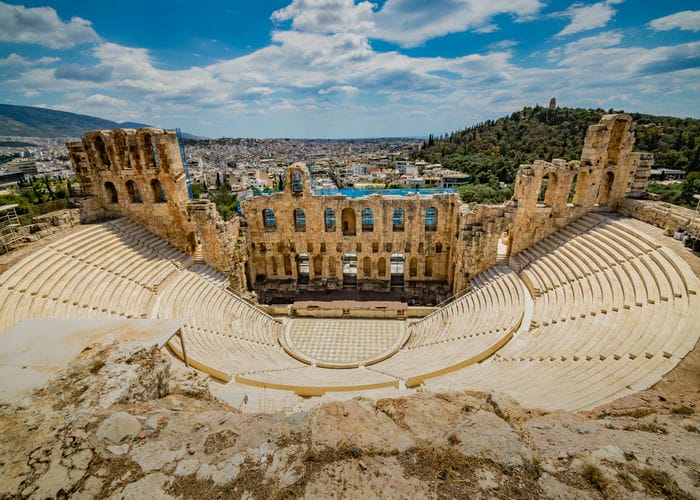
The Hellenistic Period began with the death of Alexander the Great in 323 B.C.
It extended to 31 B.C., ushering in an era marked by significant cultural and territorial expansion that bridged Greek and Eastern civilizations.
Cultural Diffusion:
- Greek language, art, and architecture propagated throughout the Mediterranean.
- Cosmopolitan cities like Alexandria and Antioch became cultural hubs.
- Philosophical schools, such as Stoicism and Epicureanism, flourished.
- Religious syncretism emerged, blending Greek and Eastern deities.
Territorial Expansion:
- Alexander's conquests stretched from Greece to India.
- The formation of Hellenistic kingdoms in Egypt, Asia, and Greece.
- Greek-style polis became ubiquitous across conquered regions, fostering cultural exchange.
Influence of Greek Culture:
- Greek (Hellenistic) culture mingled with local traditions.
- The Library of Alexandria symbolized the intellectual zenith.
- Innovations in the sciences and arts spread widely.
The Mediterranean:
- The Hellenistic era connected the Mediterranean by trade and cultural exchange.
- Greek became the lingua franca of the Mediterranean Basin.
- Hellenistic influence persisted even after Roman dominion.
By the end of the Hellenistic Period, Greek culture had indelibly shaped the Mediterranean world, laying a foundation for the Western and Eastern Roman Empire and the eventual rise of Western civilization.
Roman Greece and the End of Greek Autonomy
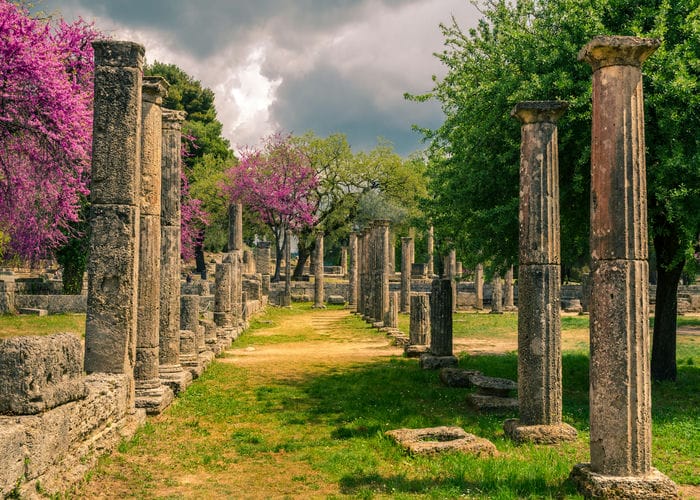
The annexation of the Greek world by the Roman Empire marked the cessation of Greek political independence that had flourished for nearly a millennium.
This period, known as Roman Greece, began decisively after the Battle of Corinth in 146 BC when Rome defeated the Achaean League and Greece came under the power of the Roman Republic.
Initially, the Romans maintained a level of Greek autonomy, allowing several city-states to operate with some degree of self-governance.
This was a strategic move to stabilize the region without enforcing direct rule. However, over time, the Roman influence gradually eroded Greek independence.
By 27 BC, with the institution of the Roman Empire under Augustus, Greece became an integral part of the Empire, alternately organized into provinces such as Achaia and Macedonia in Northern Greece.
| Key Event | Description |
|---|---|
| Battle of Corinth | End of the independent Greek city-states in 146 BC. |
| Roman Provinces | Establishment of provinces like Achaia and Macedonia. |
Roman Greece persisted until the fall of the Western Roman Empire in 476 CE.
During this epoch, the culture, philosophy, and science in Greece continued to have an influential presence throughout the Roman realm.
However, the previous Greek political structures were subsumed within the Empire's vast administrative system, henceforth shaping Greek identity under the dominion of Rome.
This effectively ended the era of Greek sovereignty until their resurgence in the 19th-century Greek War of Independence.
The Byzantine Era and the Ottoman Rule
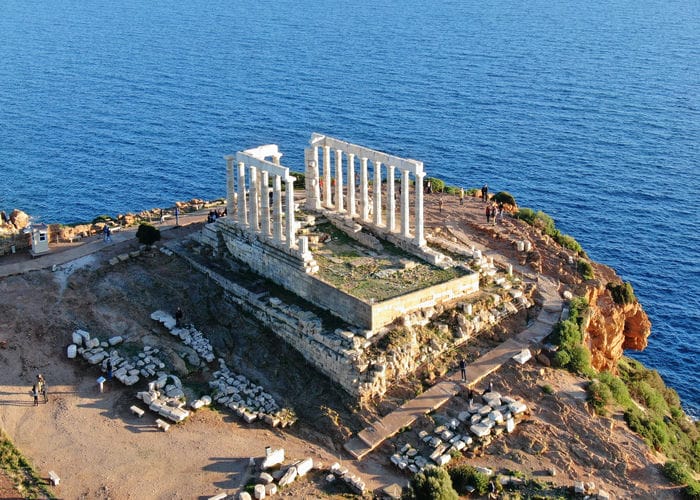
The Byzantine Empire, the eastern continuation of the Roman Empire, played a pivotal role in preserving Greek identity throughout the medieval period.
This empire was established in 330 AD when Emperor Constantine I founded Constantinople (modern-day Istanbul).
Notably, the Byzantines referred to themselves as 'Romans,' but their Greek language and culture were dominant throughout the empire’s tenure.
Key Events:
- 330 AD: Constantinople is founded.
- 5th Century AD: Western Roman Empire collapses; Byzantine Empire survives.
- 1453 AD: Fall of Constantinople to the Ottoman Turks.
Throughout the Byzantine era, the empire saw fluctuating fortunes including periods of territorial expansion and contraction.
Territories at various times included parts of Italy, Greece, the Balkans, the Levant, Asia Minor, and North Africa.
The empire's longevity is attributed to its strong administrative system and cultural achievements, which included the codification of Roman law and the proliferation of Greek Orthodox Christianity.
By the 14th century, however, the Byzantine Empire faced an existential threat from the Ottomans, a rising power in Anatolia.
The Ottoman Empire began to encroach on Byzantine territory, culminating in the fall of Constantinople in 1453, an event that marked the end of the Byzantine Empire.
Under Ottoman rule, Greek identity was maintained through the Orthodox Church and communal institutions, even as the Ottomans introduced new administrative and social structures.
Greek Identity under Ottoman Rule:
- Greek Orthodox Church maintained autonomy.
- Greek communities had limited self-governance.
- Continued use of the Greek language within communities.
The fall of Constantinople signaled a drastic shift in the region’s power dynamics and is often considered a key event marking the end of the Middle Ages and the beginning of the Renaissance in Western Europe.
The impact on Greek identity was profound, as it moved from being at the heart of a Greek-speaking empire to being a part of a larger, multiethnic Ottoman state.
Final Thoughts
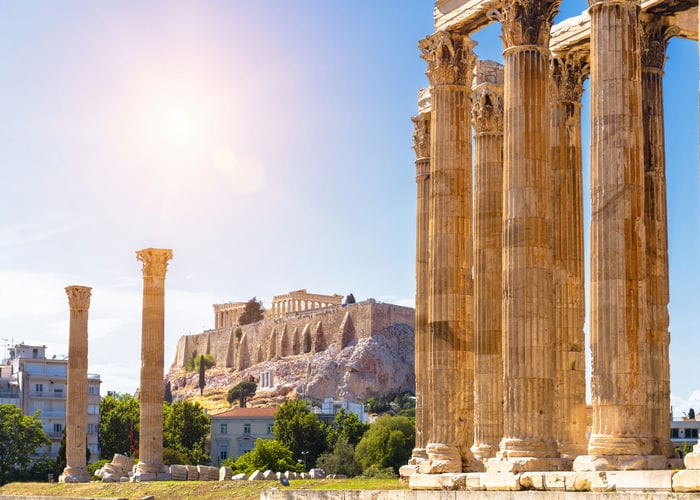
In tracing the origins of Greece, we have journeyed through a tapestry of historical epochs, each contributing uniquely to the civilization's rich mosaic.
From the earliest Neolithic settlements to the sophisticated polis of the Classical era, the evolution of Greek society has been marked by a series of cultural zeniths and transformative periods.
The Hellenistic era expanded Greek influence beyond its traditional borders, intertwining it with diverse cultures and setting the stage for subsequent Roman and Byzantine rule.
Under these empires and despite World War II, and the Greek Civil War of 1946-1949, Greek identity persevered, adapting yet enduring through the Orthodox Church and community cohesion.
The story of Greece is not one of a single founding moment, but rather a continuous narrative of development, resilience, and profound impact on the Western world.
As we reflect upon the vast historical landscape of Greece and Greek politics, it becomes clear that the essence of its founding lies within the cumulative layers of its past, each era contributing to the enduring legacy that continues to captivate the world's imagination.





